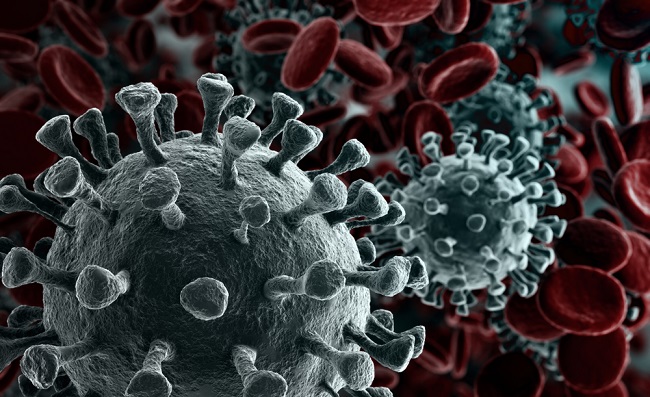UofG scientists fast-track research into COVID-19 and heart disease
Published: 20 May 2020
Researchers are supporting global efforts to combat Covid-19, and trying to better understand its wider effects on people with heart and circulatory diseases.
University of Glasgow researchers funded by the British Heart Foundation (BHF) in Scotland are supporting global efforts to combat Covid-19 and better understand its wider effects on people with heart and circulatory diseases.
A number of projects under the Scottish Government’s Rapid Research programme are underway, including two involving scientists from the BHF’s Centre for Research Excellence at the University of Glasgow.

Professor Rhian Touyz and her team are investigating if patients with high blood pressure suffer more severely when infected with coronavirus and whether certain blood pressure drugs aggravate or improve infection. Their findings are especially important in Scotland where almost a third of adults have high blood pressure.
People with heart and circulatory diseases are at increased risk from Covid-19. Professor Colin Berry’s study involves 160 patients who have been hospitalised with Covid-19 to assess for heart and lung injury using imaging scans, and related wellbeing. They will examine which patients are at risk of heart injury and why only some suffer heart problems.
Professor James Leiper, Associate Medical Director at the British Heart Foundation, said: “Covid-19 presents an unprecedented challenge for the cardiovascular research community. However, we also have a huge opportunity to harness the expertise of our scientists in Scotland and existing research infrastructure to better understand and tackle this new disease.
“Supporting people living with heart and circulatory diseases is our top priority. A better understanding of how Covid-19 affects the heart and circulatory system and the role it plays in disease severity may reveal key areas to help fight this devastating disease and ultimately save lives.”
Heart and circulatory diseases are risk factors for severe Covid-19 infection and can seriously affect patient outcomes. After dementia, coronary heart disease was the second most common pre-existing health condition recorded on death certificates for people who died with Covid-19 during April in Scotland, according to data from National Records Scotland.
Professor Rhian Touyz, BHF Professor of Cardiovascular Medicine at the University of Glasgow, explains: “Findings from our study will provide important information on whether patients in Scotland with high blood pressure are at higher risk of getting Covid-19 than those who do not have high blood pressure. Our studies will also inform doctors on which blood pressure drugs are most useful in Covid-19 patients and will also clarify if some commonly used blood pressure drugs actually worsen the infection. Together we will gain new insights on how best to treat and manage Covid-19 patients with high blood pressure.”
Professor Colin Berry, Professor of Cardiology and Imaging at the University of Glasgow, and Golden Jubilee National Hospital Director of Research and Development, says: “Our study will answer whether patients who are recovering from Covid-19 have persisting problems in the heart and lungs. We need this information rapidly in order to guide the management of patients with persisting symptoms. The study will underpin scientific research in the longer term into why and how the SARS-CoV-2 virus affects the heart and blood vessels.”
Professor Dame Anna Dominiczak, Vice Principal of the University of Glasgow and Head of its College of Medical, Veterinary and Life Sciences, said: “I am incredibly proud that researchers across the University of Glasgow have been able to provide expertise and research to support the efforts in the fight against Covid-19.
“This new work undertaken by our scientists on hypertension, and other aspects of cardiovascular research, will add vital information about this virus and how it affects people with these underlying health conditions.”
Enquiries: ali.howard@glasgow.ac.uk or elizabeth.mcmeekin@glasgow.ac.uk / 0141 330 6557 or 0141 330 4831
First published: 20 May 2020
Related Links
- Professor Rhian Touyz, profile
- Professor Colin Berry, profile
- Professor Dame Anna Dominiczak, profile
- BHF Centre for Research Excellence
- r and Medical Sciencesr and Medical Sciences
- College of Medical, Veterinary and Life Sciences
- British Heart Foundation
- COVID-19 Research at the University of Glasgow

